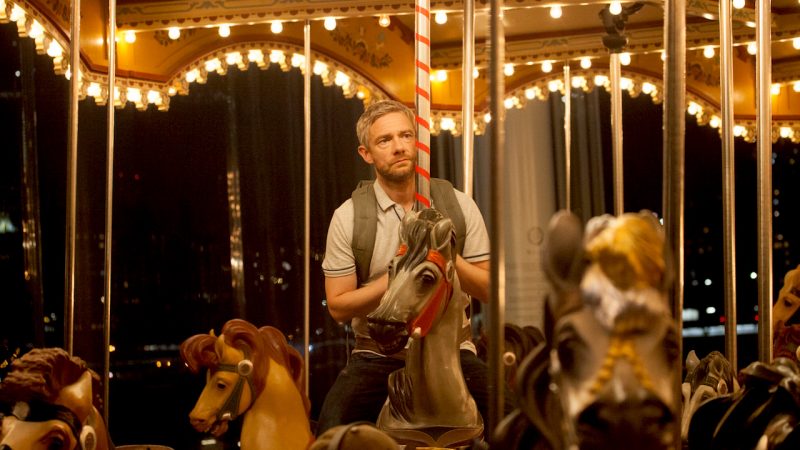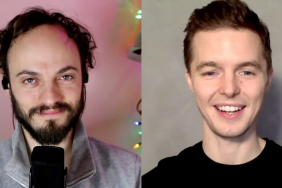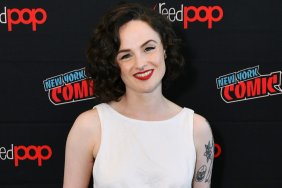“I just thought that was interesting,” begins Martin Freeman, “The horror, but also the potential comedy, in not allowing yourself to be happy.”
Speaking via phone to ComingSoon, Freeman speaks enthusiastically about his latest feature film, Ode to Joy, a romantic comedy, which is currently available to stream on IFC. Freeman plays Charlie, a librarian who’s rigidly mild-mannered, a self-inflicted character trait…










